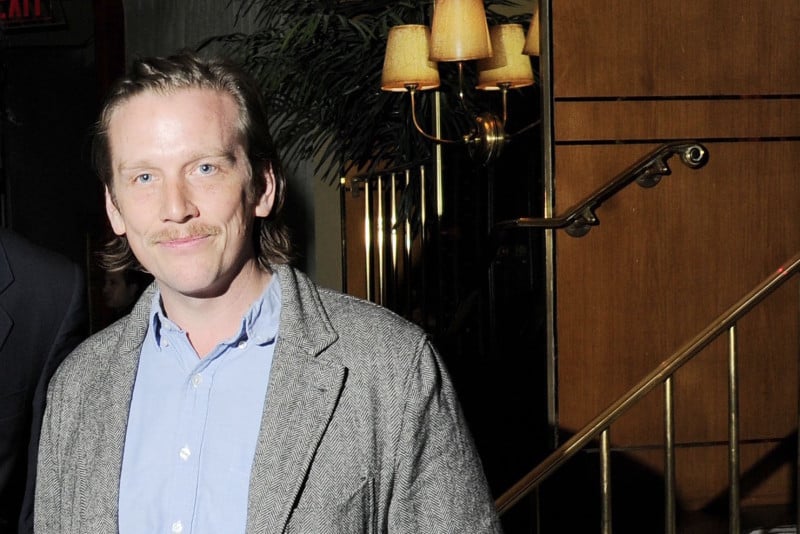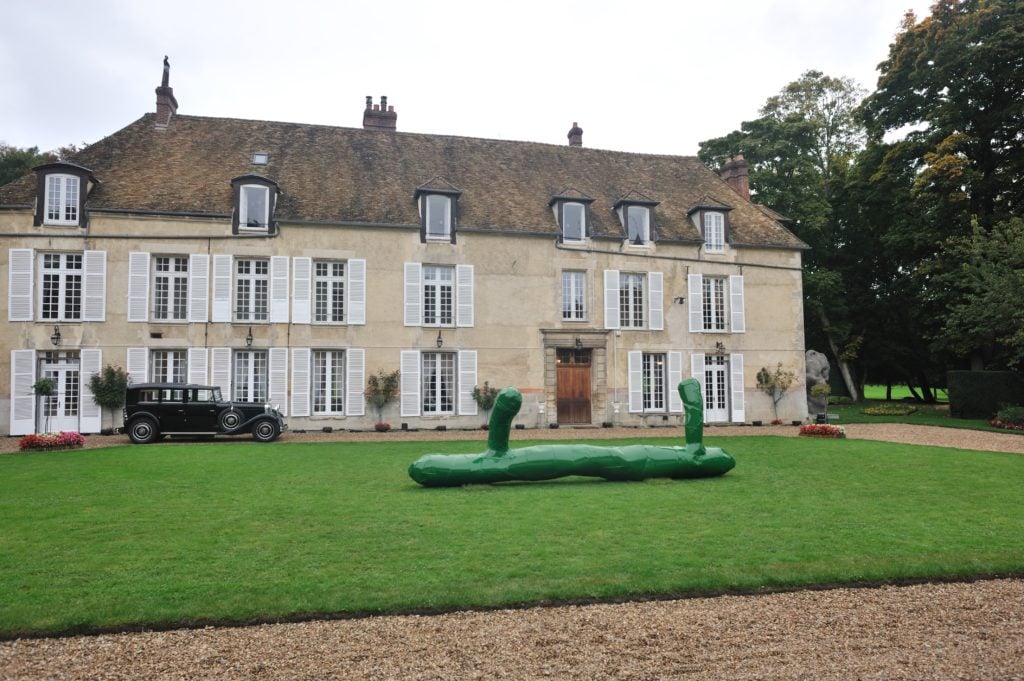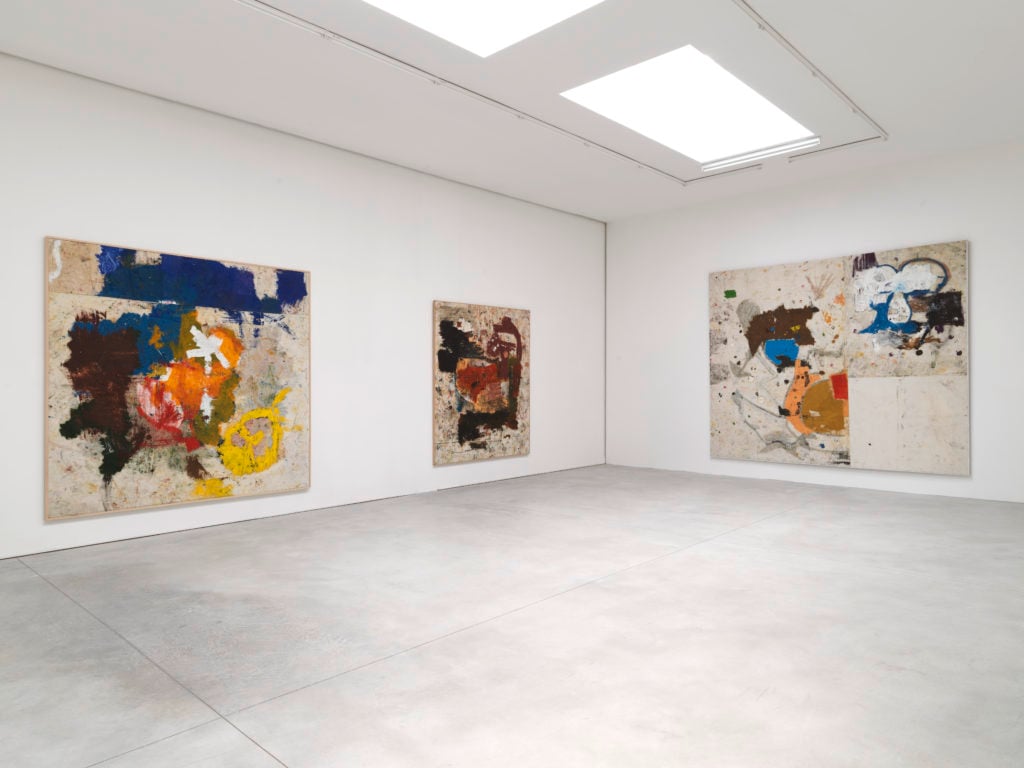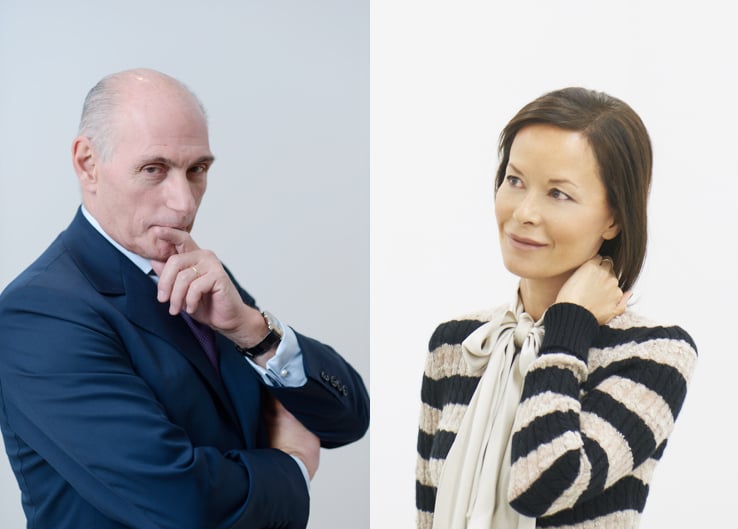Art & Exhibitions
Is Joe Bradley the Heir to Picasso? A Solo Show at the Cubist’s Chateau Makes the Case He Is
The initiative marks the first attempt to turn Picasso's former studio into a contemporary art venue.

The initiative marks the first attempt to turn Picasso's former studio into a contemporary art venue.

Henri Neuendorf

Showing works at Pablo Picasso’s studio would be a dream for any artist, a dream that will come true for US painter Joe Bradley when he exhibits new sculptures at Château de Boisgeloup, the Spanish master’s private home in the idyllic French countryside.
Organized by the Fundación Almine y Bernard Ruiz-Picasso (FABA), the Bradley show will mark the public debut of the legendary artist’s former home and workplace as an art space. It has remained mostly empty since the artist’s death in 1975.
The property, which was intermittently used as a storage facility, was tentatively tested by FABA as an arts venue in 2012 when it hosted a private exhibition of works by Pablo Picasso, David Smith, Cy Twombly and Franz West for a VIP audience of less than 100 guests.

Château de Boisgeloup. Photo: Fundación Almine y Bernard Ruiz-Picasso.
Like Picasso, Joe Bradley’s work has been defined by the exploration of a wide variety of techniques, styles, and mediums. Throughout his career the American artist has experimented with modular canvases, anthropomorphic shapes, and abstract expressionistic works on canvas. More recently however, the artist has worked with bronze sculptures that resemble found objects, drawing on his minimalist and monolithic works, uniting them in one series.
“One similarity we can find is that they [Picasso and Bradley] were both known as painters, their sculpture practice being discovered later on, once they were already famous,” co-chair of FABA and Bradley’s gallerist Almine Ruiz-Picasso told artnet News in an email.
She also noted that Picasso only publicly showed four sculptures in his lifetime, at the Spanish Pavilion of the 1937 World Expo. Similarly, Bradley only recently showed his sculptural practice at Gagosian, New York last Spring.
Additionally, Ruiz-Picasso said, both artists draw upon found objects in their sculptural practice and paint over the bronze in oil, something that was reviled when Picasso first experimented with the technique in 1914, due to the precious nature of the material.

“Joe Bradley” at Le Consortium, Dijon, France. Photo: Fundación Almine y Bernard Ruiz-Picasso.
“Picasso incorporated found objects in a large number of his sculptures, it is one of his many inventions,” Ruiz-Picasso explained. “Bradley’s sculptures are also based on found objects, and then cast in bronze and painted. But the way Joe Bradley chooses his found objects is totally different from the way Picasso did. Bradley finds objects that in a way already exist in his work and in his drawings or paintings.”
Bradley will be the main event, but to mark the occasion, sculptures by contemporary artists Dan Brown, Jeff Koons, Richard Prince, and Julian Schnabel will be installed in the surrounding park. Photos and film material from Olga Ruiz-Picasso’s archive will be on view in the estate’s dovecote and church.

Bernard and Almine Ruiz-Picasso co-chairs of the Fundación Almine y Bernard Ruiz-Picasso. Photo: Fundación Almine y Bernard Ruiz-Picasso.
“It’s an occasion for an artist of the 21st to show his work from the perspective of a 20th century one,” Ruiz Picasso summarized. “All art comes from its predecessors, an unbroken link. We believe that the studio only asks to become alive again. Picasso was very interested in other artists’ work—both his contemporaries and from the past—and we think he would have been open to this new life for his studio. We don’t think he’d like the idea of a sanctuary.”
“Joe Bradley” runs from April – May 2017 (exact dates TBA) at Château de Boisgeloup, Gisors, France.